Making news this quarter:
It takes our educators a day and half to travel 2,200 kilometres to reach Doomadgee State School, in Queensland’s remote northwest Gulf Country but the annual trip to the Aboriginal community is worth every mile.
Life Ed Queensland Program Delivery Manager and educator, Sue Osmond says the Doomadgee visit not only brings plenty of smiles, but also delivers vital education, health and safety messages to the community’s young people.
“The Doomadgee community shows remarkable resilience and strength in the face of very significant health challenges and is always working towards positive change,” Ms Osmond said.
“As educators, we’ve witnessed so much progress in the time we have been visiting the school. It’s incredible when students remind us about health messages they learned with us six years ago, so the knowledge really sticks with them.”
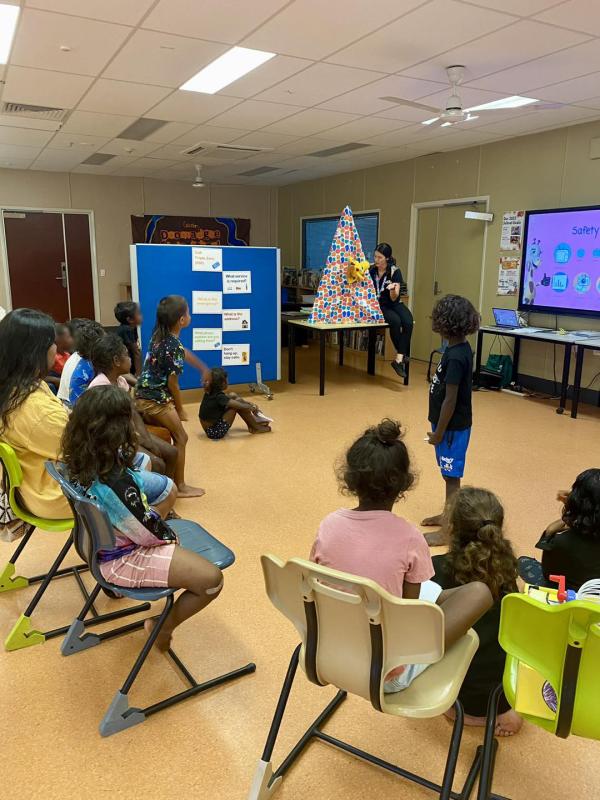
Ongoing health challenges remain for First Nations people, and the magnitude of health disparities is often greater in remote areas. According to the National Aboriginal and Torres Strait Islander Health Survey released in 2019,
Much more needs to be done to close the gap in communities across Australia, yet the positive long-term health impacts being seen in Doomadgee have inspired our Life Ed team.
“To see the relationships strengthen and grow over eight years of being in community and to witness the exceptional learning and growth of the students, is inspirational. It’s a privilege to play a part in that,” Ms Osmond says.
For educators Sue and Niccola, one of the highlights of this trip was being invited to participate in Doomadgee community events.
“We were welcomed at the school assembly for the presentation of achievement awards and invited to join Friday Clubs – a program which involves students in fun, creative learning activities such as cooking, photography, technology and art,” Ms Osmond said.
“In one session, we ran healthy eating workshops which gave Doomadgee children the chance to prepare their own nutritious snacks, and in another workshop, younger students created mosaic art pieces.”
Key Life Ed programs were delivered during the week-long visit, cementing crucial health and safety learning.
Younger students took part in Friends and Feelings and Harold’s Healthy Foods; Year 8 students experienced Decisions, which explores the impact of drugs and peer influences, and Year 9 and 10 students received relationships education.
Doomadgee teacher Ashley Mitchell says the Life Ed visit is a highlight for students and teachers.
“Doomadgee’s remote location, high cost of travel and complications of the wet season, make it extremely challenging to access extracurricular programs, so when Life Ed and the educators arrive, our whole school community is excited,” Ms Mitchell said.
“The students get to explore important topics about making healthy choices, but it supports us as teachers too. It gives our students access to additional resources and learning experiences which align with year-level appropriate curriculum content and consolidates the teaching happening in classrooms.
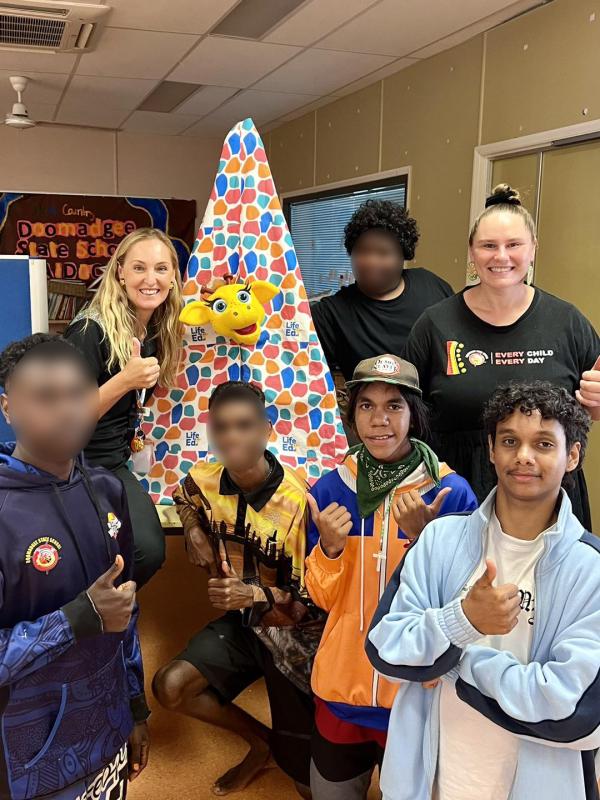
“Our students in the Year 9/10 class responded positively to the animations featuring First Nation’s characters – this was highly suited to our context.”
Until next time, thank you Doomadgee State School for welcoming Healthy Harold and our educators to community. We love your Doomadgee way.
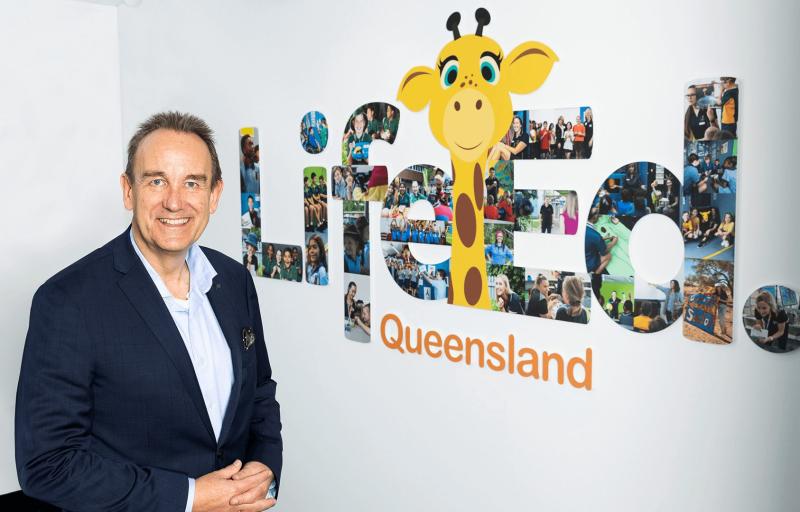
We’re all disturbed by the amount of violence, domestic and family violence, and youth crime that seems to be gripping our community lately. But while we despair at the senseless loss of lives and determine the best way to approach this complex problem, it’s important to hold onto optimism.
No child is born to hate. As Nelson Mandela said: “People must learn to hate, and if they can learn to hate, they can be taught to love, for love comes more naturally to the human heart than its opposite.”
That’s why preventing future violence begins with educating our next generation. It’s critical that the principles of tolerance, understanding, respect and empathy are taught and embedded throughout a child’s education, from an early age.
At Life Ed Queensland, young people are at the heart of everything we do. We are passionate about working alongside schools to build children’s social and emotional skills, so that together we can build safer communities, for today, and for the future.
Bullying has always existed, but social media can create a platform for lies, bullying and predators that, with a smartphone in their pocket, children can’t escape. It’s unchartered and constantly changing territory that parents and teachers struggle to understand and control.
The eSafety Commission is reporting that now, with the advent of AI, some young people are setting up imposter accounts to taunt their bullying target, which further amplifies the impact of bullying and causes even greater distress for the victims. But it’s not just online torment. Research* suggests 84% of students who are bullied online are also bullied in person.
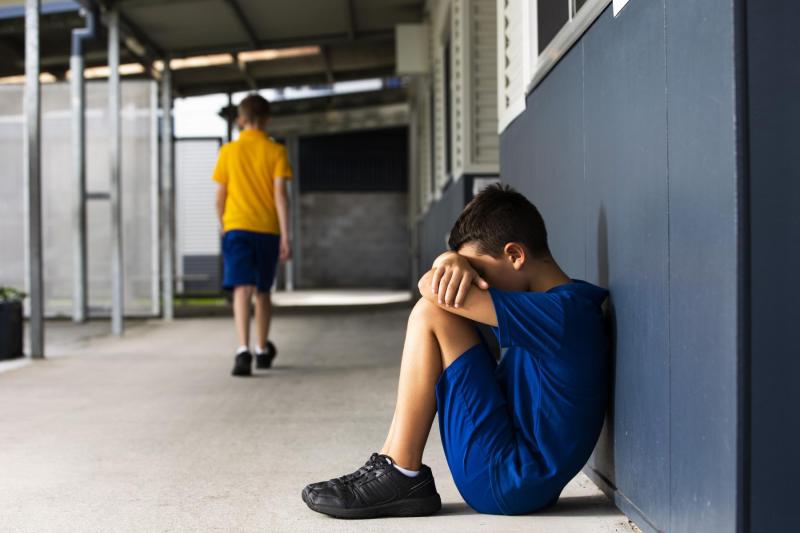
Bullying of any kind, for any reason, can have immediate and long-term effects on those involved, including bystanders.
We know that victims of bullying, violence and abuse are impacted physically, socially and emotionally. It can destroy a young person’s confidence and self-esteem and their desire to learn and go to school.
Children who are bullied are three times more likely to experience depression and there’s a link between bullying others at school and aggressive behaviour as adults.
At Life Ed Queensland, we’ve increased our program’s focus on addressing bullying in schools and we hope to invest even more in this area in the future.
This year, 120 000 Queensland children will participate in Life Ed modules relating to respectful relationships, helping to address the problems of violence and bullying.
Our programs empower children with the confidence and skills to navigate cyberbullying, digital identity and reputation, how to recognise online grooming by sexual predators, how to maintain privacy, safety and personal information online, and how to show respect and observe consent in online and face-to-face relationships.
Education in schools is vital, so that students can be empowered to understand relationship hierarchies, peer interactions and navigate their social world both online and face to face, in positive, empathetic and respectful ways. We know that bullying can be greatly reduced and even prevented, when there is a whole school and community approach to finding lasting, positive outcomes.
It’s vital that we continue to focus on this area, because the school environment is a major predictor of wellbeing outcomes; and I’m sure you’ll agree that every child deserves to experience a safe and happy school journey – one which allows them to reach their full potential and thrive.
(Source: Bullyingnoway.gov.au)
Aliitasi is 11, and next year, will start high school. But she’s already thinking carefully about what choices she’ll make to deal with peer pressure and keep herself safe from harm. One thing she now knows for sure, she won’t ever be persuaded to try vaping.
A vice-captain at her school, Aliitasi had already talked with her parents about the dangers of vapes, but when her Year 6 class experienced Life Ed’s new vaping module, Take a Breath, she was shocked to find out just how harmful e-cigarettes actually are.
“During the lesson, I learned about just what is inside e-cigarettes. When I found out what was inside many vapes, I was flabbergasted. When I heard that some vapes produce an aerosol which contains a whole lot of harmful chemicals, I was completely disgusted.”
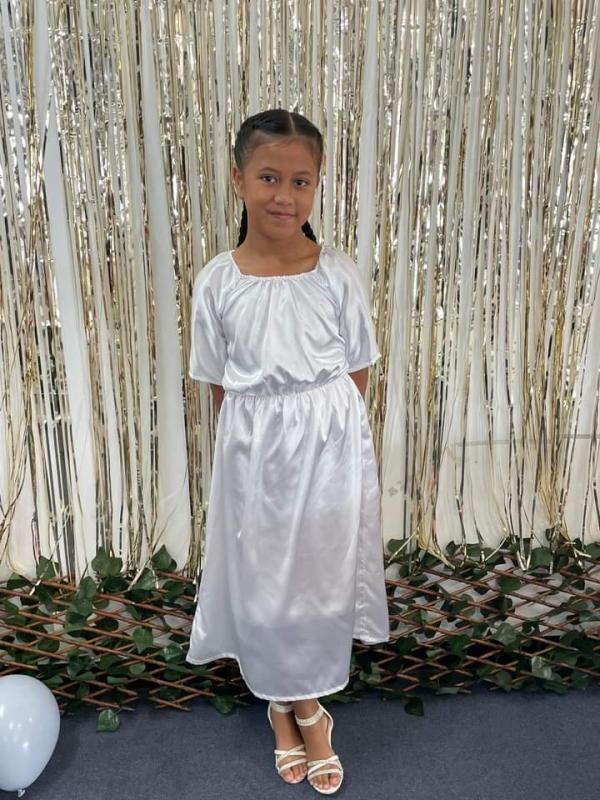
Allitasi is one of thousands of primary students who have already experienced the Take a Breath program since it launched in schools in term one. The innovative session, for Years 5 and 6 students, encourages children to stop, take a breath and critically evaluate the current evidence and myths about e-cigarettes; and become more aware about the marketing and social media influences around vaping.
Latest government data reveals one in six high school students have recently tried vaping, making it critical to reach children with the right information before they make the transition to high school.
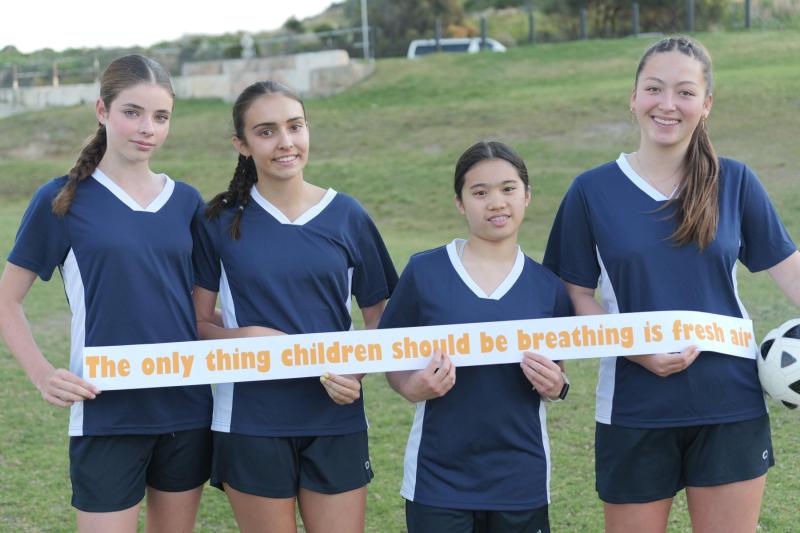
Allitasi recalls how the Life Ed educator helped them understand the true health impact of vaping on the body.
“We learned that vaping is so bad for your lungs and affects your breathing, which can sometimes lead to having cancer,” Aliitasi says. “We took ten seconds to breathe in and breathe out. It makes you realise that there is no better thing to breathe into your body than fresh air. I know that I would never vape.”
The vaping education is the latest learning milestone in Aliitasi’s Life Education journey.
She says the program has not only made learning fun; it has taught her “a lot of important new stuff” she didn’t know before.
“In Year 5, our class had the bCyberwise module and I learned how important it is to not give anyone your private information online, to report unwanted contact to a trusted adult and always show respect for others online,” Aliitasi says.
“One of the activities we did was about helping teens with how they should deal with a stranger who is texting them. For example, when a girl posted a cool photo of her skating, and a stranger texted her and wanted to meet her in real life, we discussed the things she should do to keep herself safe.
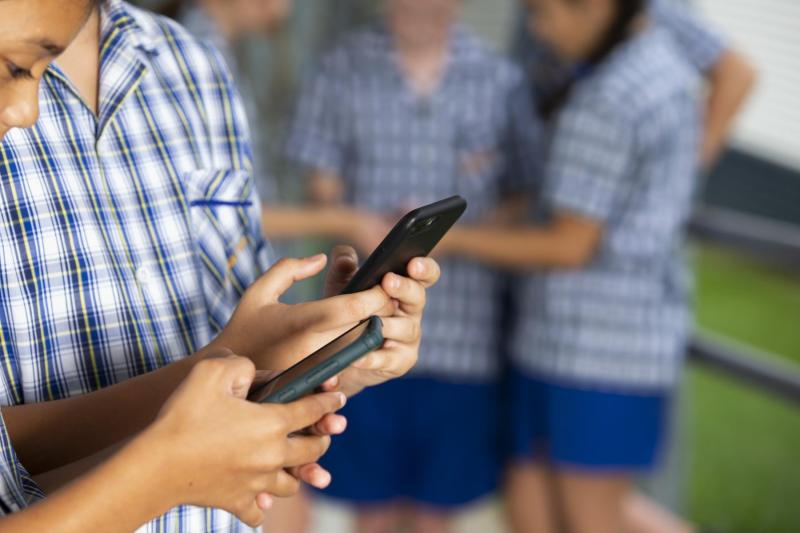
“The message I remember the most is to never ever text anyone that you do not know and do not give them your private info.”
Aliitasi’s mother Ianeta says she is so grateful for the positive influence the Life Ed program has had on her daughter.
“This program is so important because it helps children understand about their safety and it helps them learn things that they need to know as they grow up in today’s world,” Ianeta says.
“Aliitasi now understands about making good choices and being safe. She also learned a lot about respect and that it’s important to show respect everywhere. She said to me, that we need to respect everyone, especially older people, and the teacher … and if our parents tell us what to do, we need to do it because we should respect them.”
Although his children are now adults, Stephen can still recall his children’s Life Education experience as though it was yesterday.
“My children were always excited when the Life Education van arrived at their school. They would come home to tell me all about what they had learnt from Healthy Harold.”
With today’s kids growing up in a vastly different society compared to previous generations, Stephen believes it’s vital they gain skills, knowledge and awareness to navigate that changed world.
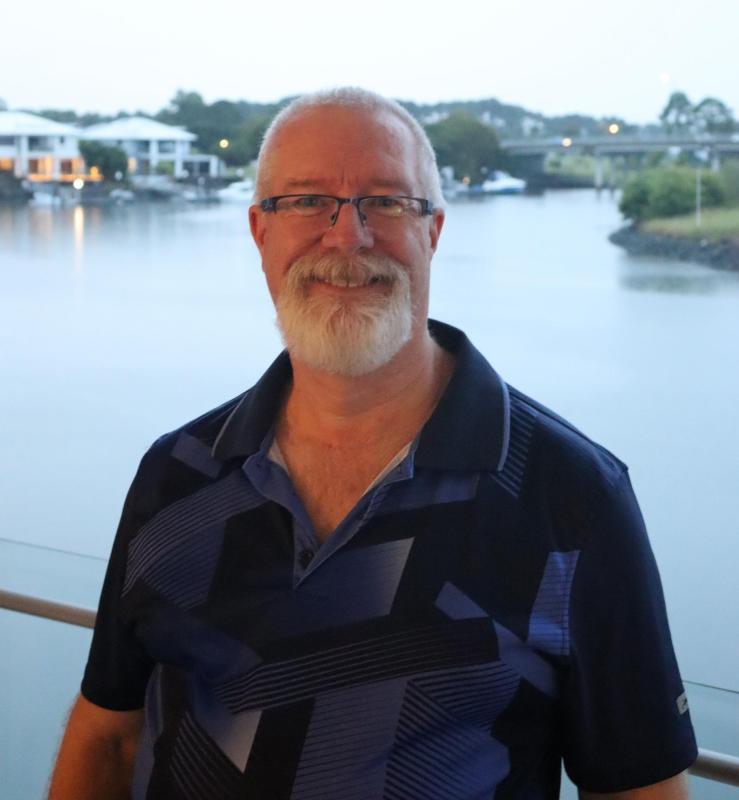
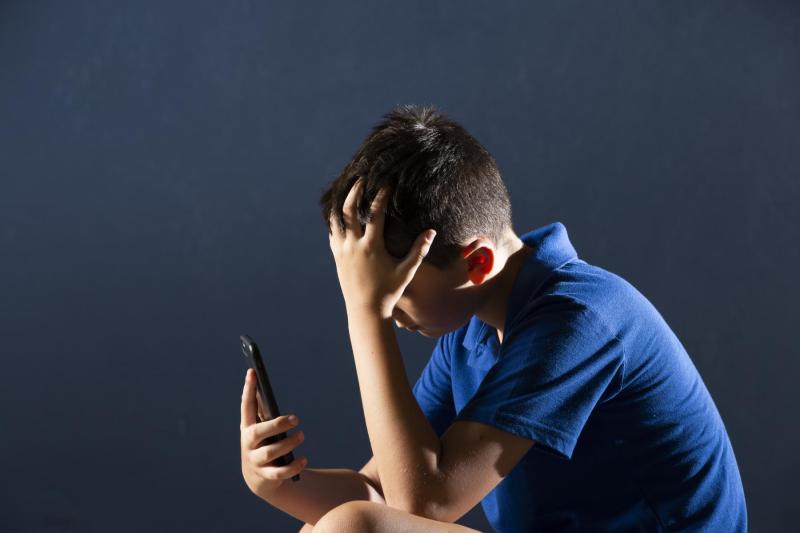
“It’s a fast-paced digital world now and children need to know how to practise safe online behaviour and navigate issues like cyberbullying, peer pressure, vapes and e-cigarettes,” Stephen says.
“Today’s kids have access to technology from a very young age and if parents are from an older generation or didn’t grow up with technology, Life Education can fill in the knowledge gap, where some parents can’t.
“I have great appreciation for Life Education’s exploration of difficult subjects with children, particularly topics that may not be discussed in other areas of their life such as in their friendship groups and home environment.”
Stephen and his wife still witness Life Ed’s capacity to bring about positive transformation.
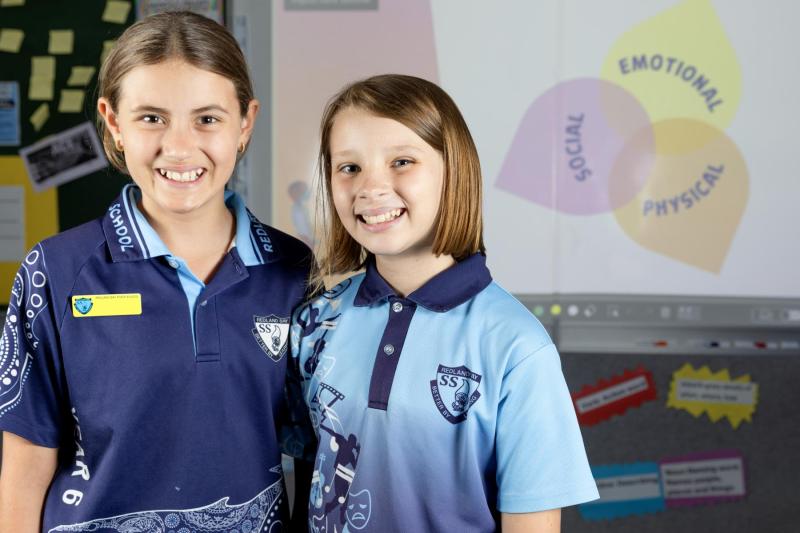
“My wife sees firsthand the real impact that Life Education programs have on young students, as she works closely with young children at a primary school.
“She says that after a visit from Healthy Harold, the children seem to be more open to discussing topics that they explored with Life Education, particularly with their teachers.
“I attribute this to Life Education creating a safe and supportive learning environment which provides young kids with the confidence to explore these topics beyond the time frame of the Life Ed programs.”
Giving kids the tools for a safer, healthier life is one of the reasons Stephen is proud to be a regular donor, and a member of the Life Ed Queensland Kids Protect Team since 2018.
“It provides me with such confidence that as a supporter I am actively contributing to a cause that strives to empower kids to make safe and healthy choices in life,” Stephen reflects.
“I am honoured to play a role in supporting an organisation that is innovative and changes with the landscape, to provide young people with the skills they need as they navigate early life.
“I would definitely urge others to consider becoming a supporter. You are contributing to something that is changing the lives of young people and helping them to navigate life in safe and supported way. It has been a great pleasure of mine, to have been a part of this wonderful endeavour, for the past five years.”
Parent burnout is a common phenomenon. In fact, a new parent survey,** the largest ever done by the Triple P – Positive Parenting Program, an organisation Life Ed Qld allies with, has revealed rising stress, emotional distress and exhaustion among parents.
The survey also revealed that almost half of all parents are dissatisfied with the amount of time that they spend on self-care activities, such as physical exercise, socialising or doing an activity they enjoy.
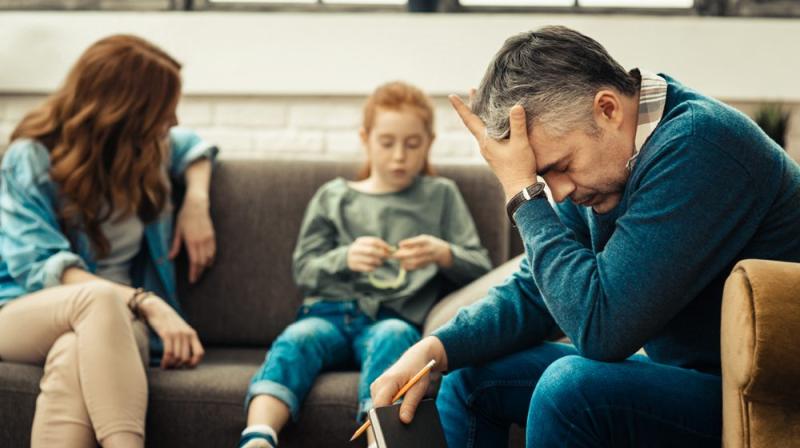
Nearly two thirds of parents experience feelings of guilt at least once a week related to the time they spend with their child. The majority (83%) of parents with kids aged under five years feel sleep deprived at least once a week. Additionally, the survey found that over 8 out of 10 parents find themselves yelling or raising their voice at their children.
Self-care and self-compassion might seem like a luxury, especially with rising cost-of-living pressures, but evidence shows parent self-care is crucial to the wellbeing of children and vital to help parents feel calmer and navigate the ups and downs of raising kids.
In our first episode of the Life Ed Podcast for 2024, popular child and adolescent psychiatrist Dr Kaylene Henderson, a busy mother of three, shares her down-to-earth tips for combating parent burnout.
She says perfectionism and trying to do it all are a recipe for exhaustion. Instead, we should focus more on lowering the bar and running our own race. Along the way, finding time to delight in our children and the quality of our relationships with them also enriches the parenting journey.
“We need to let go of this idea that we can do it all because we genuinely can’t,” Dr Henderson says. “And you’re not a failure for not being able to do it all. It’s actually just that the expectations on us are impossible.
“If the to-do list is unachievably long, reflect on what is it you want to keep at the top there; what are the big priorities for you and really just hone in on doing those things well.”
Hear more of Dr Henderson’s great tips for overcoming parent burnout in our latest Life Ed Podcast for parents, or watch the podcast video.
**N.B. The podcast was recorded before the Triple P parent survey results came out and refers to a 2022 study by the Parenting Research Centre which also found parents struggle to find time to relax and recharge.
Life Ed Queensland is an accredited provider of the Triple P seminars – Raising Resilient Children & Fear-Less. For more information, see our website.
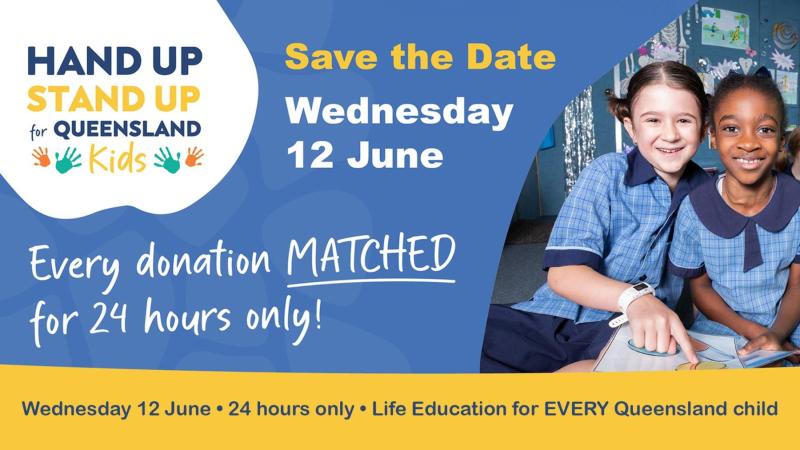
Life Ed QLD is having its first ever Giving Day, this Wednesday June 12. We’ll be asking YOU to stand up for Queensland kids by supporting us to provide lifesaving education, keeping children safe from abuse.
The day is called Hand Up, Stand Up for Qld Kids. For 24 hours only, your support will go twice as far, with every donation you make, matched by giving partners.
So…

That’s double the number of children that you can help, making double the impact.
Sadly, 59 per cent of sexual assault victims in Australia are children. Many of these cases are never reported.
At Life Ed Queensland, we’re committed to creating a world where every child is safe from abuse and neglect, a world where all children can grow up free from harm.
So please mark the day on your calendar and join us as we hand up, stand up for Qld kids – support our Giving Day on Wednesday, June 12.